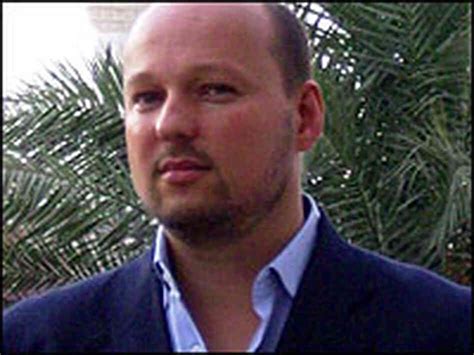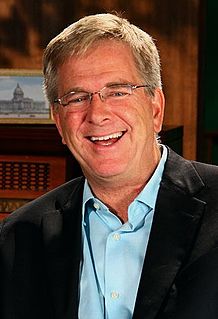A Quote by Anjem Choudary
The American administration obviously has supported the dictators in the Muslim countries and the Muslims are rising, as you can see their boiling in Libya and Egypt and many other countries and they're rising up against the oppression and the Americans should stay away from trying to, if you like, put another dictator in place, and I don't think the American interest in the current time in the Middle East with their presence, rather they should withdraw their forces, they should withdraw their own personnel, this is a very insecure time for the Americans I think.
Quote Topics
Administration
Against
American
Another
Away
Boiling
Countries
Current
Dictator
Dictators
East
Egypt
Forces
Insecure
Interest
Libya
Like
Many
Middle
Middle East
Muslim
Muslims
Obviously
Oppression
Other
Other Countries
Own
Personnel
Place
Presence
Put
Rather
Rising
Rising Up
See
Should
Stay
Supported
Think
Time
Trying
Up
Very
Withdraw
Related Quotes
Even if you are a liberal in the Muslim world, when you see Abu Ghraib and Guantanamo, and you see all the other reports of abuses by American forces, it's very hard to get up and say, "We should simulate the American ways," because this is the face of America now in the Muslim world, for many Muslims.
40, 50 years ago, Americans - the majority of Americans did not want to accept these Vietnamese refugees who they saw as completely foreign. Now there are new foreigners - Syrians and other people from the Middle East, people of Muslim backgrounds. And the sense among many Americans is, well, these people are completely different from us, and they're not like the Vietnamese who are much more assimilable. And I think that's very, very doubtful. I think that the majority of these new foreigners, if given the opportunity, will be able to assimilate and deal with American culture.
I think it's only in a crisis that Americans see other people. It has to be an American crisis, of course. If two countries fight that do not supply the Americans with some precious commodity, then the education of the public does not take place. But when the dictator falls, when the oil is threatened, then you turn on the television and they tell you where the country is, what the language is, how to pronounce the names of the leaders, what the religion is all about, and maybe you can cut out recipes in the newspaper of Persian dishes.
We Americans, or half of Americans, think health care is a commodity. Other countries view health care as a social service that should be collectively financed and available to everyone on equal terms. My wife and I just interviewed the German minister of health, and it was an exhilarating experience, because it was a totally different language. It was obviously important that everyone should have the same deal in health care.
American Muslims are already within the system. We should stop isolating ourselves by thinking we are powerless. The youngest generations of Americans have a better opinion of Islam because they interact with Muslims. Half of young American citizens now are supporting the Palestinians rather than the Israelis. Things are moving.
From the standpoint of a Middle Eastern citizen, Americans look like a bully forcing our way of life on the Islamic way of life. The notion of purity is very important in Islam, and a lot of the negative warlike actions taken against us have to do with our physical presence in the Middle East. Osama bin Laden was trying to get the American, or protesting the American military presence in Saudi Arabia. It's not surprising that our strong presence in Iraq has produced a wave of resistance anger, extreme anger in some cases, and a permissive atmosphere that allows these people to go undetected.
I should mention there are many European countries right now that already protect children from Wi-Fi, so it's not like this is some preposterous idea. This is already embraced by many countries all around the world. I don't think it is preposterous to suggest that public health needs greater protection in this country, especially that of children, among whom there is a rising tide of brain cancer right now.
I would like travelers, especially American travelers, to travel in a way that broadens their perspective, because I think Americans tend to be some of the most ethnocentric people on the planet. It's not just Americans, it's the big countries. It's the biggest countries that tend to be ethnocentric or ugly. There are ugly Russians, ugly Germans, ugly Japanese and ugly Americans. You don't find ugly Belgians or ugly Bulgarians, they're just too small to think the world is their norm.
The Americans are poor haters in international affairs because of their innate feeling of superiority over all foreigners. An American's hatred for a fellow American is far more virulent than any antipathy he can work up against foreigners. Should Americans begin to hate foreigners wholeheartedly, it will be an indication that they have lost confidence in their own way of life.
There is a cottage industry of these Muslim bashers who are training law enforcement personnel, military personnel... and you are breeding a generation of leaders in our society who have this suspicion of Islam and hostility towards American Muslims and Muslims in general. The intention of these trainers is to demonise Islam and to marginalise American Muslims.
There's a long history in the Middle East of "bread intifadas," starting with 1977 in Egypt, when Anwar Sadat tried to lift bread subsidies. People rebelled and poured into Tahrir Square, shouting slogans against the government just like they did earlier this year. Sadat learned his lesson and kept bread subsidies in place, and so did a host of other Middle Eastern dictators - many of whom were propped up for years by the West, partly through subsidized American wheat.






































